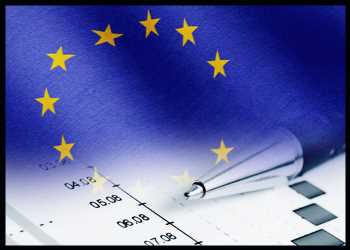
Eurozone Economic Sentiment Improves Modestly On Manufacturing Rebound
Eurozone economic confidence improved marginally in April as the weakness in industry was more than offset by improvement in confidence among consumers and services providers.
The economic sentiment index, or ESI, rose to 99.3 in April from 99.2 in the previous month, data from the European Commission showed Thursday.
The broadly unchanged level of the ESI reflects a combination of markedly higher confidence among consumers and considerably lower sentiment among industry managers.
Industry confidence weakened for the third consecutive month in April largely due to the deterioration in managers’ production expectations and their assessments of the current order books. The industrial sentiment index declined to -2.6 from -0.5 a month ago.
By contrast, reflecting improved assessments of past business situation, past demand and demand expectations, the services confidence index rose to 10.5 from 9.6 in March.
At -17.5, the consumer confidence index improved from -19.1 and matched the flash estimate published on April 20.
Sentiment continued the recovery from its all-time low in September 2022, fueled especially by improvements in consumers’ views on their past and future financial situation as well as the expected general economic situation.
The retail trade confidence came in at -1.0 in April, up from -1.5 in the previous month. The moderate gain reflects slightly more optimistic business expectations.
At the same time, construction confidence remained unchanged at 1.0 in April as managers’ assessments of the level of order books continued deteriorating, while their employment expectations improved.
The employment expectations index declined 1.5 points to a four-month low of 107.4. The latest decline was due to markedly less optimistic employment plans among industry and services managers.
Further, the survey showed that selling price expectations continued to weaken in all surveyed business sectors.
The slowdown in inflation expectations suggest that the peak in underlying inflation has been reached, ING economist Peter Vanden Houte said.
The economist noted that Eurozone growth is driven by stronger consumer demand, especially for services, while the manufacturing sector is struggling.
The European Central Bank is set to deliver another interest rate hike next week. The only question is whether the central bank will opt for a quarter point or half a percentage point increase.
Source: Read Full Article